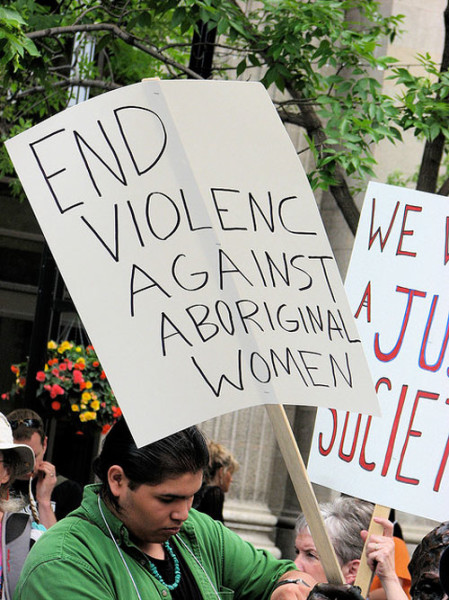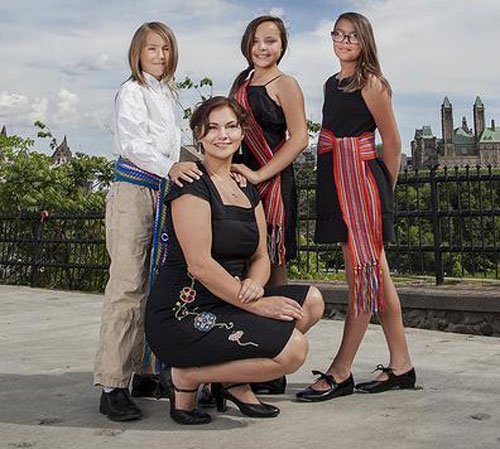Aboriginal Awareness Week began in 1992 to acknowledge the work of Aboriginal people in federal public services. Since its inception, it has grown into a government-wide celebration held annually for the week following the Victoria Day long weekend. During this week, participants raise awareness about First Nations, Inuit, and Métis cultures across Canada and celebrate the contributions of Aboriginal people to Canadian culture. Those involved participate in a variety of workshops, art and performances, traditional Aboriginal cuisine, and traditional and contemporary ceremonies. Previous years have included such performers and speakers as Jaime and the Jiglets (Métis jiggers), Cynthia Pitsiulak and Charlotte Qamaniq (Inuit throat singers), and Albert Dumont (an Algonquin Elder).
For us at Nellie’s, Aboriginal Awareness Week 2014 will be a time to reflect on the connection between Aboriginal women and the topic of our upcoming position paper: criminalized and incarcerated women. Plain and simple, the Canadian Justice system disproportionately criminalizes and incarcerates Aboriginal women. In 2010/2011, Aboriginal women, while making up less than 5% of the adult female population,[1] made up 41% of the Canadian female prison population.[2] This high rate of incarceration represents a group of women who have inherited the calamitous effects of European colonialism[3] and experienced various forms of violence from an early age; out of incarcerated Aboriginal women, 90% reported experiencing physical abuse, 53% reported being sexually abused, 41.1% disclosed childhood abuse/neglect, and 35.3% experienced “severe” childhood poverty.[4] In other words, criminalization goes hand-in-hand with previous experiences of violence and oppression.[5] Nellie’s recognizes this connection between criminalization, oppression, and experiences of violence and understand these issues as serious interpersonal and systemic challenges many Aboriginal women face.
As Nellie’s continues to support Aboriginal women, there are many things you can do to celebrate Aboriginal Awareness Week. If you are interested in activism or working in the community, check out the Idle No More movement or the Native Women’s Resource Centre of Toronto. There are also a number of cultural events and activities you can participate in, such as viewing the ROM’s collection of contemporary Aboriginal paintings by Jane Ash Poitras or checking out the week long festivities in Ottawa. Also, many universities across Canada celebrate Aboriginal Awareness Week at different times throughout the school year, so keep an eye on your local university’s events postings for more information. If you want to explore Aboriginal culture even further, June 26th features the Native Canadian Centre of Toronto Aboriginal History Month celebration in Yonge and Dundas Square.
[1] Canada. Statistics Canada. Ethnic Origin Reference Guide: National Household Survey, 2011. Comp. Government of Canada. Ottawa: Statistics Canada = Statistique Canada, 2013. 2011 National Household Survey: Data Tables. Web. 7 Apr. 2014.
[2] Canada. Statistics Canada. Adult Correctional Statistics in Canada, 2010/2011. By Mia Dauvergne. Government of Canada, 2012. Web. 7 Apr. 2014.
[3] Dyck, Jennifer. “Stories From the Front: Realities of the Over-Incarceration of Aboriginal Women in Canada.” Thesis. University of British Columbia, 2013. Print.
[4] DAWN. “Women in Prison – CAEFS Fact Sheets.” Women in Prison – CAEFS Fact Sheets. Disabled Women’s Network Ontario, n.d. Web. 07 Apr. 2014.
[5] Ibid.





